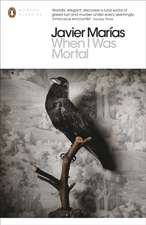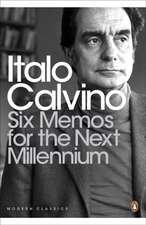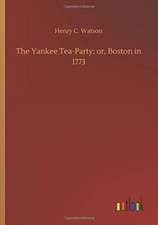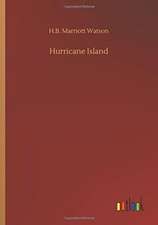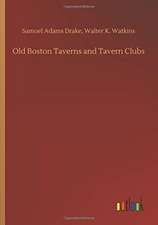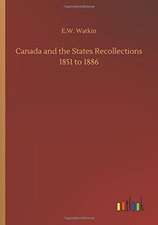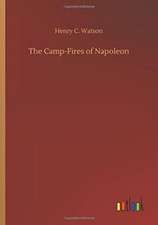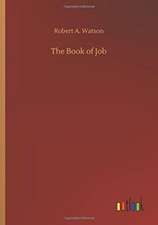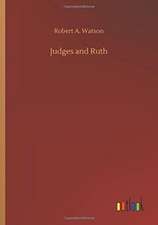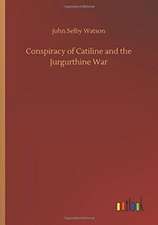Youth
Autor J. M. Coetzeeen Limba Engleză Paperback – 30 sep 2003 – vârsta de la 18 ani
The second installment of J. M. Coetzee's fictionalized "memoir" explores a young man's struggle to experience life to its full intensity and transform it into art. The narrator of Youth has long been plotting an escape-from the stifling love of his overbearing mother, a father whose failures haunt him, and what he is sure is impending revolution in his native country of South Africa. Arriving at last in London in the 1960s, however, he finds neither poetry nor romance and instead begins a dark pilgrimage into adulthood. Youth is a remarkable portrait of a consciousness, isolated and adrift, turning in on itself, of a young man struggling to find his way in the world, written with tenderness and a fierce clarity.
| Toate formatele și edițiile | Preț | Express |
|---|---|---|
| Paperback (2) | 51.47 lei 22-33 zile | +16.27 lei 7-13 zile |
| Random House – 6 feb 2003 | 51.47 lei 22-33 zile | +16.27 lei 7-13 zile |
| Penguin Books – 30 sep 2003 | 117.92 lei 6-8 săpt. |
Preț: 117.92 lei
Nou
Puncte Express: 177
Preț estimativ în valută:
22.57€ • 23.47$ • 18.91£
22.57€ • 23.47$ • 18.91£
Carte tipărită la comandă
Livrare economică 13-27 martie
Preluare comenzi: 021 569.72.76
Specificații
ISBN-13: 9780142002001
ISBN-10: 0142002003
Pagini: 169
Dimensiuni: 128 x 199 x 12 mm
Greutate: 0.15 kg
Editura: Penguin Books
ISBN-10: 0142002003
Pagini: 169
Dimensiuni: 128 x 199 x 12 mm
Greutate: 0.15 kg
Editura: Penguin Books
Recenzii
"A delight to read: it will make you angry, amused, scornful and sympathetic by turns." (San Francisco Chronicle)
"Coetzee makes a book of melancholy beauty and quiet force." (Vince Passaro, O Magazine)
"Coetzee makes a book of melancholy beauty and quiet force." (Vince Passaro, O Magazine)
Notă biografică
Born in Cape Town, South Africa, on February 9, 1940, John Michael Coetzee studied first at Cape Town and later at the University of Texas at Austin, where he earned a Ph.D. degree in literature. In 1972 he returned to South Africa and joined the faculty of the University of Cape Town. His works of fiction include Dusklands, Waiting for the Barbarians, which won South Africa’s highest literary honor, the Central News Agency Literary Award, and the Life and Times of Michael K., for which Coetzee was awarded his first Booker Prize in 1983. He has also published a memoir, Boyhood: Scenes From a Provincial Life, and several essays collections. He has won many other literary prizes including the Lannan Award for Fiction, the Jerusalem Prize and The Irish Times International Fiction Prize. In 1999 he again won Britain’s prestigious Booker Prize for Disgrace, becoming the first author to win the award twice in its 31-year history. In 2003, Coetzee was awarded the Nobel Prize in Literature.
Extras
Youth In England girls pay no attention to him, perhaps because there still lingers about his person an air of colonial gaucherie, perhaps simply because his clothes are not right. When he is not dressed up in one of his IBM suits, he has only the grey flannels and green sports jacket he brought from him from Cape Town. The young men he sees in the trains and the streets, in contrast, wear narrow black trousers, pointed shoes, tight, boxlike jackets with many buttons. They also wear their hair long, hanging over their foreheads and ears, while he still has the short back and sides and the neat parting impressed on him in his childhood by country-town barbers and approved of by IBM. In the trains the eyes of girls slide over him or glaze with disdain.
There is something not quite fair in his plight: he would protest if he only knew where and to whom. What kind of jobs do his rivals have that allow them to dress as they please? And why should he be compelled to follow fashion anyway? Do inner qualities count for nothing?
The sensible thing would be to buy himself an outfit like theirs and wear it at weekends. But when he imagines dressing up in such clothes, clothes that seem to him not only alien to his character but Latin rather than English, he feels his resistance stiffening. He cannot do it: it would be like giving himself up to a charade, an act.
London is full of beautiful girls. They come from all over the world: as au pairs, as language students, simply as tourists. They wear their hair in wings over their cheekbones; their eyes are dark-shadowed; they have an air of suave mystery. The most beautiful are the tall, honey-skinned Swedes; but the Italians, almond-eyed and petite, have their own allure. Italian lovemaking, he images, will be sharp and hot quite different from Swedish, which will be smiling and languorous. But will he ever get a chance to find out for himself? If he could ever pluck up the courage to speak to one of these beautiful foreigners, what would he say? Would it be a lie if he introduced himself as a mathematician rather than just a computer programmer? Would the attentions of a mathematician impress a girl from Europe, or would it be better to tell her that, despite his dull exterior, he is a poet?
He carries a book of poetry around with him in his pocket, sometimes Holderlin, sometimes Rilke, sometimes Vallejo. In the trains he ostentatiously brings forth his book and absorbs himself in it. It is a test. Only an exceptional girl will appreciate what he is reading and recognize in him an exceptional spirit too. But none of the girls on the trains pay him any attention. That seems to be one of the first things girls learn when they arrive in England: to pay no attention to signals from men.
What we call beauty is simply a first intimation of terror, Rilke tells him. We prostrate ourselves before beauty to thank it for disdaining to destroy us. Would they destroy him if he ventured too close, these beautiful creatures from other worlds, these angels, or would they find him too negligible for that?
In a poetry magazine—Ambit perhaps, or Agenda—he finds an announcement for a weekly workshop run by the Poetry Society for the benefit of young, unpublished writers. He turns up at the advertised time and place wearing his black suit. The woman at the door inspects him suspiciously, demands his age. 'Twenty-one,' he says. It is a lie: he is twenty-two.
Sitting around in leather armchairs, his fellow poets eye him, nod distantly. They seem to know one another; he is the only newcomer. They are younger than he, teenagers in fact, except for a middle-aged man with a limp who is something in the Poetry Society. They are younger than he, teenagers in fact, except for a middle-aged man with a limp who is something in the Poetry Society. They take turns to read out their latest poems. The poem he himself reads ends with the words 'the furious waves of my incontinence.' The man with the limp deems his word-choice unfortunate. To anyone who has worked in a hospital, he says, incontinence means urinary incontinence or worse.
He turns up again he next week, and after the session has coffee with a girl who has read out a poem about the death of a friend in a car accident, a good poem in its way, quiet, unpretentious. When she is not writing poetry, the girl informs him, she is a student at King's College, London; she dresses with appropriate severity in dark skirt and black stockings. They arrange to meet again.
They meet at Leicester Square on a Saturday afternoon. They had half agreed to go to a film; but as poets they have a duty to life at its fullest, so they repair to her room off Gower Street instead, where she allows him to undress her. He marvels at the shapeliness of her naked body, the ivory whiteness of her skin. Are all Englishwomen as beautiful when their clothes are off, he wonders?
Naked they lie in each other's arms, but there is no warmth between them; and warmth, it becomes clear, will not grow. At last the girl withdraws, folds her arms across her breasts, pushes his hands away, shakes her head mutely.
He could try to persuade her, induce her, seduce her; he might even succeed; but he lacks the spirit for it. She is not only a woman, after all, with a woman's intuitions, but an artist too. What he is trying to draw her into is not the real thing—she must know that.
In silence they get dressed. 'I'm sorry,' she says. He shrugs. He is not cross. He does blame her. He is not without intuitions of his own. The verdict she has delivered on him would be his verdict too.
After this episode he stops going to the Poetry Society. He has never felt welcome there anyway.
He has no further luck with English girls. There are English girls enough at IBM, secretaries and punch operators, and opportunities to chat to them. But from them he feels a certain resistance, as if they are not sure who he is, what his motives might be, what he is doing in their country. He watches them with other men. Other men flirt with them in a jolly, coaxing English way. They respond to be flirted with, he can see that: they open like flowers. But flirting is not something he has learned to do. He is not even sure he approves of it. And anyhow, he cannot let it become known among the IBM girls that he is a poet. They would giggle among themselves, they would spread the story all over the building.
There is something not quite fair in his plight: he would protest if he only knew where and to whom. What kind of jobs do his rivals have that allow them to dress as they please? And why should he be compelled to follow fashion anyway? Do inner qualities count for nothing?
The sensible thing would be to buy himself an outfit like theirs and wear it at weekends. But when he imagines dressing up in such clothes, clothes that seem to him not only alien to his character but Latin rather than English, he feels his resistance stiffening. He cannot do it: it would be like giving himself up to a charade, an act.
London is full of beautiful girls. They come from all over the world: as au pairs, as language students, simply as tourists. They wear their hair in wings over their cheekbones; their eyes are dark-shadowed; they have an air of suave mystery. The most beautiful are the tall, honey-skinned Swedes; but the Italians, almond-eyed and petite, have their own allure. Italian lovemaking, he images, will be sharp and hot quite different from Swedish, which will be smiling and languorous. But will he ever get a chance to find out for himself? If he could ever pluck up the courage to speak to one of these beautiful foreigners, what would he say? Would it be a lie if he introduced himself as a mathematician rather than just a computer programmer? Would the attentions of a mathematician impress a girl from Europe, or would it be better to tell her that, despite his dull exterior, he is a poet?
He carries a book of poetry around with him in his pocket, sometimes Holderlin, sometimes Rilke, sometimes Vallejo. In the trains he ostentatiously brings forth his book and absorbs himself in it. It is a test. Only an exceptional girl will appreciate what he is reading and recognize in him an exceptional spirit too. But none of the girls on the trains pay him any attention. That seems to be one of the first things girls learn when they arrive in England: to pay no attention to signals from men.
What we call beauty is simply a first intimation of terror, Rilke tells him. We prostrate ourselves before beauty to thank it for disdaining to destroy us. Would they destroy him if he ventured too close, these beautiful creatures from other worlds, these angels, or would they find him too negligible for that?
In a poetry magazine—Ambit perhaps, or Agenda—he finds an announcement for a weekly workshop run by the Poetry Society for the benefit of young, unpublished writers. He turns up at the advertised time and place wearing his black suit. The woman at the door inspects him suspiciously, demands his age. 'Twenty-one,' he says. It is a lie: he is twenty-two.
Sitting around in leather armchairs, his fellow poets eye him, nod distantly. They seem to know one another; he is the only newcomer. They are younger than he, teenagers in fact, except for a middle-aged man with a limp who is something in the Poetry Society. They are younger than he, teenagers in fact, except for a middle-aged man with a limp who is something in the Poetry Society. They take turns to read out their latest poems. The poem he himself reads ends with the words 'the furious waves of my incontinence.' The man with the limp deems his word-choice unfortunate. To anyone who has worked in a hospital, he says, incontinence means urinary incontinence or worse.
He turns up again he next week, and after the session has coffee with a girl who has read out a poem about the death of a friend in a car accident, a good poem in its way, quiet, unpretentious. When she is not writing poetry, the girl informs him, she is a student at King's College, London; she dresses with appropriate severity in dark skirt and black stockings. They arrange to meet again.
They meet at Leicester Square on a Saturday afternoon. They had half agreed to go to a film; but as poets they have a duty to life at its fullest, so they repair to her room off Gower Street instead, where she allows him to undress her. He marvels at the shapeliness of her naked body, the ivory whiteness of her skin. Are all Englishwomen as beautiful when their clothes are off, he wonders?
Naked they lie in each other's arms, but there is no warmth between them; and warmth, it becomes clear, will not grow. At last the girl withdraws, folds her arms across her breasts, pushes his hands away, shakes her head mutely.
He could try to persuade her, induce her, seduce her; he might even succeed; but he lacks the spirit for it. She is not only a woman, after all, with a woman's intuitions, but an artist too. What he is trying to draw her into is not the real thing—she must know that.
In silence they get dressed. 'I'm sorry,' she says. He shrugs. He is not cross. He does blame her. He is not without intuitions of his own. The verdict she has delivered on him would be his verdict too.
After this episode he stops going to the Poetry Society. He has never felt welcome there anyway.
He has no further luck with English girls. There are English girls enough at IBM, secretaries and punch operators, and opportunities to chat to them. But from them he feels a certain resistance, as if they are not sure who he is, what his motives might be, what he is doing in their country. He watches them with other men. Other men flirt with them in a jolly, coaxing English way. They respond to be flirted with, he can see that: they open like flowers. But flirting is not something he has learned to do. He is not even sure he approves of it. And anyhow, he cannot let it become known among the IBM girls that he is a poet. They would giggle among themselves, they would spread the story all over the building.
Descriere
From the Booker Prize-winning author of "Disgrace" comes a second volume of memoir that "proves yet again that the awkward young man did indeed become a 'real artist'"--"The Wall Street Journal."



